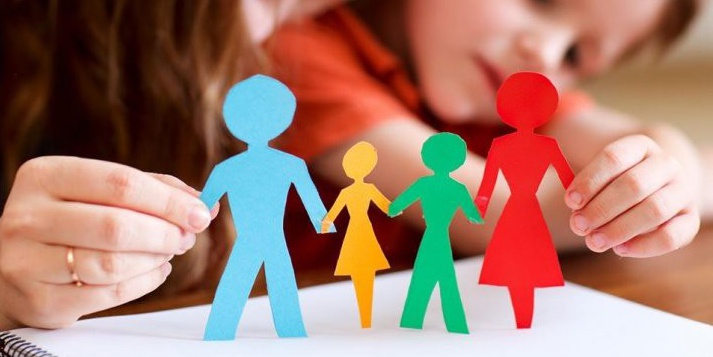I constantly strive to develop and acquire new knowledge, my experience and additional education confirm this.
A foster family is a special type of family arrangement, where adults voluntarily accept orphans and children deprived of parental care to raise and live together. This form of upbringing aims to provide children with a stable family environment, love, care and support, which they may lose due to the loss of parents or other difficult life circumstances.
In a foster family, children have the opportunity to receive not only physical care and provision, but also psychological, emotional and social support. Foster parents play an important role in creating an atmosphere of trust, mutual understanding and teaching children social and life skills.
Thanks to foster families, children have the opportunity to feel part of a stable family environment that contributes to their overall well-being and development.
the process of creation and functioning of foster families in Ukraine:
1. Decision to create a foster family: This decision is taken by the competent body of the relevant state administration (district, city) in accordance with the procedure established by the Cabinet of Ministers of Ukraine.
2. Conclusion of an agreement on placement of children in a foster family: An agreement is concluded between the adoptive parents and the relevant body on the basis of a standard agreement approved by the Cabinet of Ministers of Ukraine.
3. Control over the activities of adoptive parents: The authority that made the decision to create a foster family has the obligation to monitor the fulfillment by adoptive parents of their responsibilities for the upbringing and maintenance of children.
4. Approval of regulations and contracts: Regulations on foster families and a standard contract on placement of children in foster families are approved by the Cabinet of Ministers of Ukraine, which ensures standardization and regulation of this field of activity.
Adoptive parents are a couple or one person who is not married, who have assumed the responsibility of living together and raising orphans and children deprived of parental care. They bear all the responsibilities for the upbringing and development of these children, including the responsibilities stipulated by the relevant legislative acts.
Adoptive parents have all the rights and responsibilities that natural parents have with respect to their children, except when these rights are limited or denied by court order or by law. They are the legal representatives of adopted children and act without the need for special powers as guardians or custodians.
These points reflect important aspects in the relationship between adopted children, adoptive parents and the state:
1. Placement in a foster family: Foster children are orphans or children deprived of parental care who are placed in a foster family for upbringing and living together.
2. Consent of the child to placement: If the child has reached the age and level of development that can express it, his consent to placement with a foster family is necessary. This is established by an official of the institution where the child is staying, with the participation of the adoptive parents and a representative of the guardianship authority.
3.Duration of stay in a foster family: Foster children live and are raised in a foster family until they reach the age of 18. However, in some cases, persons from the number of orphans and children deprived of parental care, who have been diagnosed with a disability, may continue to live in a foster family until the age of 23.
4. Preservation of rights to social benefits: Foster children retain the right to alimony, pension, other social benefits, as well as to compensation for damage in connection with the loss of a breadwinner, which they had before being placed in a foster family.
5. Maintaining contacts with parents and relatives: Foster children have the right to maintain personal contacts with parents and other relatives, except when this may harm their life, health and moral education.
# children's lawyer # children's rights lawyer # children's rights lawyer Kyiv # divorce if there are children # documents for divorce if there are children # separation of children during divorce #
































